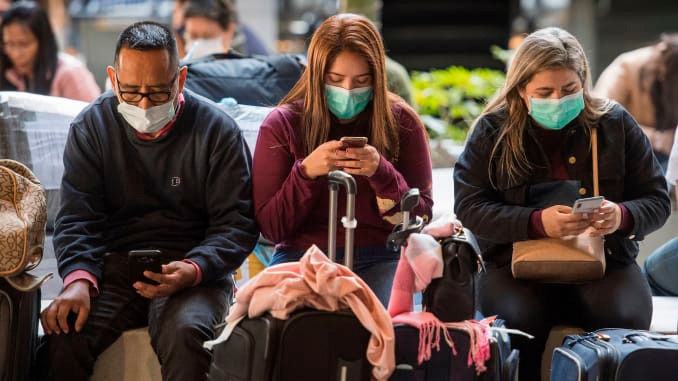The museum sector and COVID-19: a new challenge or a call for reform?
- Admin
- Apr 14, 2020
- 3 min read
Updated: Nov 2, 2021

The whole world is shaken by a pandemic that was never previously happened. COVID-19 is an infectious disease which not only infects the anatomical life of human beings but also very seriously infects the macroeconomic system. We are already witnessing very important consequences in all areas of life. According to various statements from economic experts, bankruptcies are estimated at billions of euros each week. Among the sectors very affected including the cultural-museum sector.
In Belgium as elsewhere, this sector is likely to suffer the pure because it is considered unproductive compared to other sectors. Normally the world thinks that this sector finds its survival in the results of other sectors because several museums are subsidised by the States. Image what interest will museums have in this situation for them to start again ?. Nobody knows anything yet, but in any case the solution is in the hands of museum professionals. Their difficult task is to show and explain the role of museums in society in general and the post-COVID-19 period in particular. Is rethinking how it works and adapting to the world today one of the preferred solutions ?.
Role of museologists
As economic experts do not sleep in the face of this scourge, it is very important that museologists rethink about this sector often considered to be ‘’less essential’’. Is it really less essential ?. The answer is no, only it needs to be reformed and rethought in an inclusive manner. Some questions deserve to be taken into consideration. What role do museums have in this period? Is it time to integrate the COVID-19 collections in our museums in order to participate in the fight against post-traumatic diseases linked to this pandemic? Is it possible to open museums under such circumstances? Can museums be a therapeutic place ?. All these questions and many others deserve a debate to get out of generalised or selected confinement and to show that such a plague cannot cause its doors to close. Few museologists in the world rather with very complicated tasks affect this sector which is evolving considerably. The problem lies in the lack of professional guidance during engagement. Often they are confused with anthropologists, historians, sociologists ... All these fields are complementary to each other but they differ mainly at the functional level. The museologist deals essentially with the life of the museum, that is to say, the design, collecting of collections, conservation, exhibition, communication. The other can have a very specific function as a curator, educator…
Collections and exhibitions
Let us consider collections as medicines and exhibitions as prescriptions here. To stay at COVID-19, museums are invited to rethink the collections they exhibit to the public. The famous permanent exhibition that almost all museums believe to have derived its identity is important, however, it must not prevent diversify the collections to being exhibited. Everyday event leaves a lesson to groups of people or society just as it can affect daily life. Some may consider it as subjective but others think it is rather positive management. This is a therapeutic debate that museologists must initiate. Displaying an image of a deserted street during the confinement period may be taken as a memory or traumatic collection. The common denominator reflects an event that affected an entire nations. Such collections and exhibitions will spark public interest?.
Digital exposure system
The confinement due to COVID-19 reinforces the digitalisation policy worldwide. Quite a few museums had already adopted digital exhibitions. This period of confinement has influenced the way of life for most of the commercial sectors. The figures show the increase in online shopping as a more or much secured method compared to the system used in mass before?. One imagines if such a system cannot be on the table among the proposals seeing that the consumers of the museum service are the same as those normal goods. Very difficult to relate but these do not prevent them from being personalised in the museum sector of course with a more or less adaptive approach. Think of our consumers as groups who can adapt to the system? Can digital visit to museums is possible in a very particularity ?. If people spend important time looking at photos as pictures on the internet why not museum collections?. I think it is possible but with varied and well-treated collections that require visitors to remain loyal. This system can be useful at a given time like the one we live in today or even remained for a specific visitors.
Prosper B. Baseka





Comments